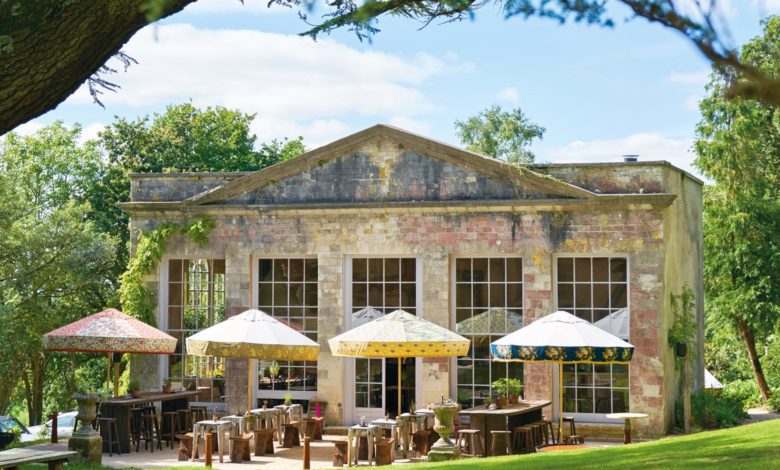Why you should have a restaurant at your hotel
Hotel Owner delves into why you should have a restaurant at your hotel and the tips and tricks to make it a thriving part of your business for guests and locals alike

Hotel restaurants can be a great tool for hotels to drive engagement and separate themselves from competitors. Beyond serving hotel guests, they often draw locals and tourists alike, becoming pillars of culinary excellence and community engagement. However, crafting a successful hotel restaurant requires a blend of strategic planning, culinary innovation, and attentive service.
Understanding the market
Before delving into the specifics, it’s crucial to grasp the dynamics of the UK’s culinary scene. The country boasts a diverse range of tastes and preferences, from traditional British fare to international cuisine. Moreover, the rise of foodie culture has elevated expectations, with diners seeking authenticity, quality, and memorable experiences. In this context, a hotel restaurant must cater to both local tastes and global trends. Flexibility and a keen awareness of market demands are paramount.
Key elements of a successful hotel restaurant
Establishing a distinct identity is fundamental. A successful hotel restaurant in the UK often integrates its unique narrative into its culinary offerings. Whether it’s celebrating local ingredients, heritage, or a fusion of global influences, a clear concept resonates with diners.
The cornerstone of any great restaurant is exceptional food. In the UK, where culinary standards are high, quality is non-negotiable. Hotel restaurants should invest in skilled chefs, fresh ingredients, and innovative menu development to stand out.
Dining is an experience that extends beyond taste. The ambiance and design of a hotel restaurant play a pivotal role in attracting and retaining patrons. From cosy gastro pubs to chic fine dining spaces, the setting should align with the restaurant’s concept and target audience.
Successful hotel restaurants actively engage with their local communities. This could involve collaborations with nearby producers, participation in local events, or showcasing regional specialties. Such initiatives foster goodwill and encourage repeat business.
Exceptional service completes the dining experience. Hotel restaurants should prioritise attentive and knowledgeable staff who can enhance guest satisfaction and leave a lasting impression.
Flexibility is key in an ever-evolving industry. Successful hotel restaurants stay ahead by embracing culinary trends, adapting to dietary preferences, and continuously refining their offerings.
The importance of locals
Relying solely on transient hotel guests for restaurant revenue can be unpredictable, particularly during seasonal fluctuations or economic downturns. A local customer base provides stability and consistent patronage, contributing to a steady stream of revenue throughout the year. This diversified customer mix can help mitigate risks associated with tourism fluctuations.
Hotel restaurants that welcome locals foster a sense of community within the surrounding area. By becoming a neighbourhood hub, these establishments integrate into the fabric of the local culture and lifestyle. This sense of belonging can lead to increased support from residents and repeat business, not only from hotel guests but also from those who live and work nearby.
A diverse clientele, including locals, enriches the dining experience for hotel guests. Locals often bring an appreciation for authenticity and quality, which can elevate the overall standards of the restaurant. This demand for excellence can positively influence menu offerings, service standards, and ambiance, benefiting all patrons.
Hotel restaurants that appeal to locals have an opportunity to showcase regional culture and culinary traditions. By incorporating local ingredients, flavours, and techniques into their menus, these establishments celebrate the unique identity of the destination. This authenticity resonates with guests seeking an immersive and memorable dining experience.
A restaurant that attracts locals naturally gains visibility within the community. Positive word-of-mouth recommendations from locals can enhance the restaurant’s reputation and credibility, leading to increased awareness among potential hotel guests. A strong local following can also generate favourable online reviews and social media engagement, further boosting visibility.
To effectively engage with locals, hoteliers should invest in strategic marketing initiatives targeted at the surrounding community. This may include hosting community events, collaborating with local businesses or influencers, and participating in neighbourhood initiatives. Such efforts demonstrate a commitment to local engagement and foster meaningful connections beyond the hotel’s guest list.
Case Studies
The Ritz Restaurant, London
Nestled within the iconic Ritz Hotel in London’s upscale Mayfair district, The Ritz Restaurant embodies elegance and tradition. Since its inception in 1906, this Michelin-starred restaurant has been synonymous with refined dining and impeccable service.
The Ritz Restaurant celebrates British gastronomy with a sophisticated twist. Under the helm of Executive Chef John Williams MBE, the menu showcases seasonal ingredients sourced from local suppliers. Dishes are beautifully presented, emphasising classic techniques and bold flavours.
The dining room exudes opulence, featuring lavish décor, crystal chandeliers, and a grand piano. The ambiance is both timeless and inviting, attracting a mix of hotel guests, locals, and international visitors seeking a quintessential British dining experience.
The Ritz actively engages with London’s culinary scene by hosting special events, culinary masterclasses, and collaborations with local artisans. This engagement fosters a sense of community and keeps the restaurant relevant in the dynamic cityscape.
The Pig Hotels represent a collection of boutique establishments scattered across the picturesque English countryside. Each property, from The Pig near Bath to The Pig on the Beach in Dorset, embodies a rustic-chic aesthetic and a commitment to sustainable dining.
The Pig Hotels follow a distinctive “farm-to-table” philosophy. Ingredients are sourced directly from the hotels’ extensive kitchen gardens and local suppliers. Menus change with the seasons, showcasing the bounty of the British landscape through dishes that celebrate simplicity and flavour.
Each Pig Hotel boasts a unique ambiance that harmonises with its surroundings. Think cosy interiors, vintage furnishings, and expansive views of rolling hills or coastal vistas. The atmosphere is relaxed yet refined, appealing to urban escapees and nature enthusiasts alike.
The Pig Hotels prioritise local engagement by supporting nearby farmers, artisans, and producers. They host garden tours, foraging experiences, and collaborative dinners with regional chefs, fostering connections with the local community.
Beyond culinary prowess, The Pig Hotels lead the charge in sustainability. Practices such as zero-waste kitchens, composting, and renewable energy initiatives underscore their commitment to responsible hospitality.









